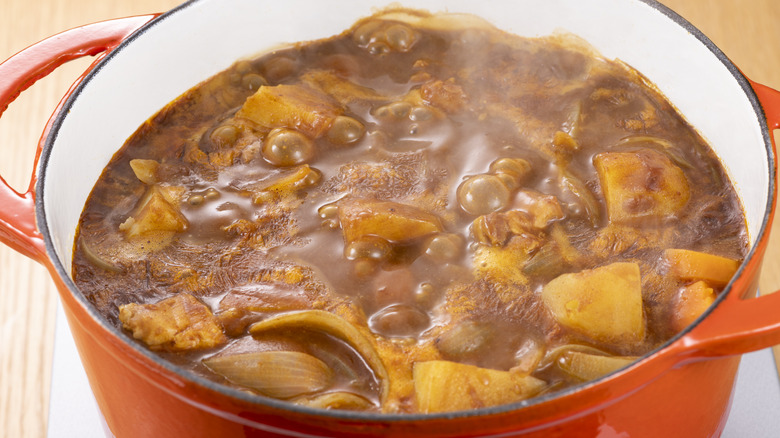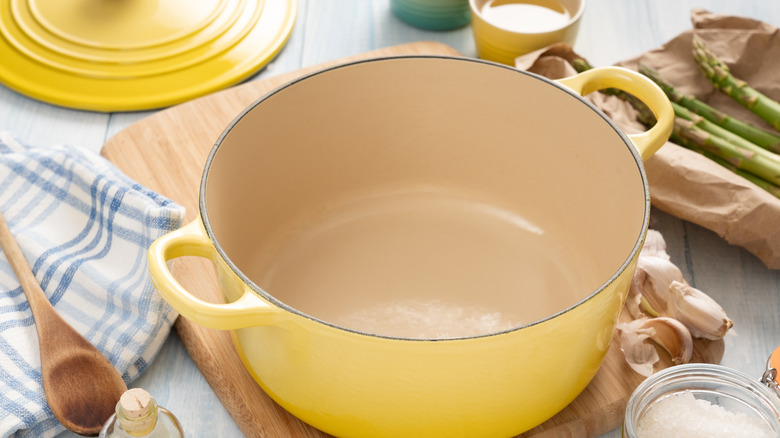Baking Soda Is All You Need To Get Tough Curry Stains Off Enamel Pans
While there are positive and negative differences between cast iron pans and enameled pans, plenty of those positives are enough to make you choose enamel. Enameled cookware doesn't need to be seasoned, it won't rust, it's compatible with different stovetops, and you can put it in the oven at up to 400 degrees Fahrenheit. One snag is that, depending on what you've cooked in it, it may be a little tricky to get it totally clean. And one of the toughest ingredients in that situation is curry.
Curry is delicious because of its spices like paprika and turmeric, but those spices are known for their brilliant hues that transfer onto surfaces and really stick. If you've been making any of your favorite curry recipes, even if you're working with one of the best enameled pans, it's not unlikely you'll have a bit of a mess to clean up, and simple soap and water isn't going to cut it. That's where baking soda comes in.
Make a paste with the baking soda using a ratio of 3 parts baking soda to 1 part water — for example, 3 teaspoons of baking soda to 1 teaspoon of water. Rinse the pan with water, and then put the paste wherever the stains are and let that sit. After 15 to 20 minutes, scrub the spots with a sponge, and then rinse. The baking soda is abrasive enough to cut in under the curry and lift it out without being harsh enough to damage the pan.
Alternative methods for cleaning curry off enamel
If you're fresh out of baking soda and can't run to the store, there are some alternatives you can try to remove curry stains from your enamel pot or pan. If you act quickly enough, you can still try using soap and water, but only if you first rinse with cold water and then let warm water and dishwashing soap soak in it for 10 minutes, followed by a gentle but firm scrub. Resist the urge to use steel wool or anything more heavy-duty than a sponge or cloth, as this will scratch the enamel.
There's also a lemon trick — or two lemon tricks, technically. The first involves boiling lemon juice — or white vinegar — in the cookware before scrubbing. If all else fails, sprinkle salt over the stains, and then squeeze lemon juice onto it, making a sort of paste. Then, scrub with that paste just like you would with the baking soda paste. If it doesn't work right away, try letting it sit for an hour or two before scrubbing.
The baking soda paste is still one of the most foolproof methods, and it's a go-to because of how easy it is and the fact that many of us already have it at home. There's also the bonus of being able to reuse the paste: Baking soda is handy when you're cleaning your oven or washing dirty sheet pans.

